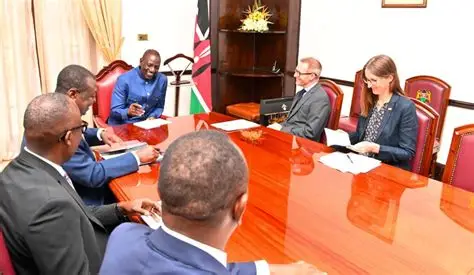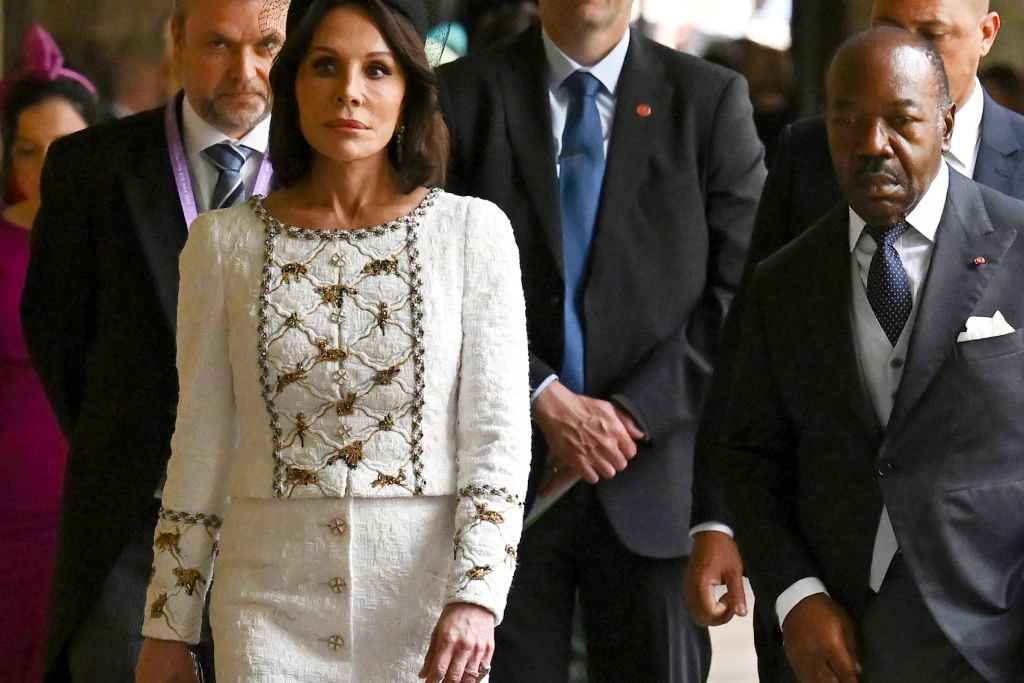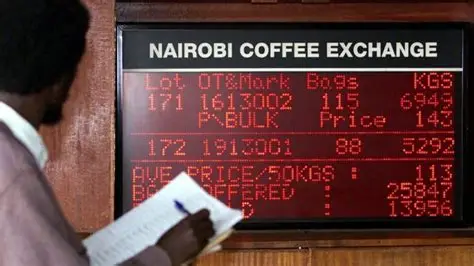
President William Ruto has made new nominations and redeployments in Kenya’s Foreign Service.
It was not immediately known why the Kenyan leader made the decision to rejig diplomatic service. However, relations with United States in the recent past appeared to cool as demonstrated by a planned review of the East African’s elevation to a strategic position as a non-member ally of the North Atlantic Treaty Organization (NATO) by the US Senate.
However, one nomination stands out and may provide an inkling of what informed the decision. The plucking of David Mwangi Karanja to become deputy head of mission in Seoul, South Korea, from the National Intelligence (NIS), where he was a high-ranking officer may have been informed by the leaking of intelligence to opposition.
In recent weeks, former Deputy President Rigathi Gachagua detailing – without supporting evidence – how President Ruto uses trumped up charges to nail down opposition leaders or neutralise resistance to his leadership. The traits of totalitarianism have been a source of worry at home and abroad, with US President Donald Trump questioning Nairobi’s reliability as an ally in geopolitics.
A foreign policy analysis posted on US State Department website hints at the concerns over Nairobi as review of Kenya’s status in NATO looms. It says:
“If Kenya’s MNNA (Major Non-NATO Ally) status is revoked, the repercussions could be significant. The designation provides access to cooperative research, development, testing and evaluation of military equipment, as well as loans of materials and supplies. Losing this status would limit Kenya’s ability to acquire advanced US military technology and could impact its defence capabilities, particularly in counterterrorism operations. Additionally, Kenyan companies would lose the opportunity to bid on lucrative US Department of Defence contracts, potentially affecting the country’s economy.”
In an executive action carried out on Friday, President Ruto realigned the nation’s Foreign Service to optimise performance and enhance service delivery as outlined in the administration’s manifesto, the presidency said in a statement.
The press statement dated August 15, 2025 said that, in accordance with Article 132 (2) of the Constitution, the president has nominated and redeployed the following ambassadors, high commissioners and consuls general as follows.
The cluster of high commissioners and ambassador nominees’ names and their re-deployment stations in the Foreign Service include Galma Mukhe Boru (Addis Ababa, Ethiopia), Anthony Mwaniki Muchiri (Ankara, Turkey), Lucy Kiruthu (Bangkok, Thailand), Henry Wambuma (Bujumbura, Burundi), Catherine Kirumba Karemu (Dar es Salaam, Tanzania), George Morara Orina (Dublin, Ireland), Abdirashid Salat Abdille (Jakarta, Indonesia), Maurice Odhiambo Makoloo (London, United Kingdom), Joseph Musyoka Masila (Riyadh, Saudi Arabia), Edwin Afande (Vienna, Austria) and Florence Chepngetich Bore (Windhoek, Namibia).
The cluster of consuls general nominees’ names and their re-deployment stations are as follows Mohamed Ramadhan Ruwange (Arusha, Tanzania), Jayne Jepkorir (Dubai, UAE) and Judy Kiaria Nkumiri (Goma, DRC).
The cluster of deputy heads of mission nominee names and their redeployment stations include Mohamed Amin Sheikh Nuh (Berlin, Germany), Kipkosgei Toroitich (Kampala, Uganda), Moni Manyange (Kinshasa, DRC), Geoffrey Eyanae Kaituko (Ottawa, Canada), Suleiman Ibrahim Roba (Riyadh, Saudi Arabia) and David Mwangi Karanja (Seoul, Korea).
According to the statement, President Ruto has already submitted the applicable nominations for Foreign Service appointments to the national assembly for consideration and approval, in accordance with the Constitution.
As the country digests the changes, there is no denying that Kenya’s diplomatic relations with the US and unfolding political situation at home were key considerations.
While Nairobi and Washington have dismissed Gachagua’s allegations of President Ruto cavorting with terrorists – which undermines US intrusts – as reckless, there is no denying the claims have ruffled feathers in di0lomatic cycles given the former deputy president’s knowledge and clout in government.
The analysis says, “The loss of MNNA status could also strain US-Kenya bilateral relations, reducing Washington’s military and intelligence support. This is particularly critical given the outdated equipment supplied to Kenya’s military such as the (derelict) helicopters blamed for the 2024 crash that killed General Francis Ogolla, Kenya’s only four-star general. Furthermore, the revocation could damage Kenya’s international standing, signalling a retreat from its role as a key US partner in Africa.”
In another assessment of Kenya’s politics by Michelle Gavin, Ebenezer Obadare and other experts who track political and security developments in sub-Saharan Africa titled ‘Accountability Gone Missing in Kenya’ on State Department website says President Ruto’s alleged unfocused foreign relations with the US is a source of worry as Nairobi inclines more and more towards China.
“It’s a political scenario that deserves close watching. How does a society that has lost faith in its political class but not necessarily in its own ability to affect change react to obvious untruths coming from official sources, to threats and violence and to an attempt to distort the very idea of truth? How can Kenyans continue to centre the ideas that energised a nationwide movement for change while contending with old attempts to divide them and this latest intentional shirking of responsibility at the very top? The answers will matter a great deal to Kenya’s future, and to the prospects for democracies in peril far beyond Kenya’s borders,” the experts say.
Kenya’s Foreign Affairs Principal Secretary Korir Sing’oei downplays the concerns and has assured the public that the issues raised in the Congressional Bill will be comprehensively addressed while prioritising Kenya’s sovereignty and national interests.
It is worth noting that Kenya’s role as a regional mediator and its leadership in the Haiti Multinational Security Support Mission and peace initiatives in the Democratic Republic of Congo are under strain due to these allegations.
“The US review also reflects broader concerns about Washington’s influence in Africa, particularly as China and Russia expand their presence on the continent. Kenya’s strategic importance as a counterterrorism platform and a hub for US military operations makes the outcome of this review critical not only for Nairobi but also for the US’s broader African strategy,” Michelle Gavin, Ebenezer Obadare, et al say.
US Congressional Bill seeks to assess Ruto’s position in national and regional politics. The experts point out that Kenyan people are well aware of the state’s role in abductions, seen as a signal of the president’s intention to live, publicly at least, in a fantasy world in which he continues to be held in high regard abroad.
According to the experts, “While he (Ruto) makes common cause with authoritarian leaders in Turkey, Uganda and Rwanda, deporting dissidents residing in Kenya or permitting their security services to sweep up opponents on Kenyan soil, he continues to invoke democratic ideals in his public discourse as he trades favours to build a coalition that can secure another – potentially extended – term in office. Perhaps years of experience with international partners who set aside concerns about governance to advance counter-terrorism cooperation have given Ruto and his inner circle a sense that anything goes as long as national security is invoked.”
As the US Congress prepares for the review, the international community will closely watch how Kenya navigates this diplomatic crisis. The findings, expected within 180 days, could redefine US-Kenya relations and impact Kenya’s standing in global geopolitics.
For now, they say, Ruto’s administration faces the challenge of addressing these serious allegations while maintaining its delicate balance between Western and Eastern alliances. The outcome of this probe will determine whether Kenya can retain its hard-earned MNNA status or face a rollback of its military and economic ties with the United States.
According to US Foreign Policy analysis, in the wake of last year’s Gen Z protests, President Ruto had two choices. He could accept the youthful population’s rejection of business-as-usual and get serious about cleaning up corruption in government, aiming to ride the wave of enthusiasm for change to usher in a new political paradigm based on delivering for voters rather than knitting together a coalition of self-serving elites.
Or, it goes on, he could revert to darker days of Kenyan historyusing political violence to suppress dissent and cow the public. He chose the latter path.
Scores of Kenyans have been abducted with no regard to the law or due process. But in an Orwellian twist, Ruto and his security officials have signalled that Kenyan citizens and partners are supposed to pretend they are unaware of this choice. They have repeatedly promised “investigations” into the abductions and disappearances, as if they had nothing to do with their authorization.
“Perhaps, for the domestic audience, he is primarily reasserting his power – to shape the broader political narrative, to eliminate voices of dissent and to instil fear. These are easier muscles to flex than those required to meaningfully respond to popular demands for reform.
The result is, as the Kenyan Conference of Catholic Bishops put it, an attempt to make everyone complicit in a “culture of lies.” In a statement issued last November, the group lamented, “Basically it seems that truth does not exist, and if it does, it is only what the government says.”
“It’s a political scenario that deserves close watching. How does a society that has lost faith in its political class but not necessarily in its own ability to affect change react to obvious untruths coming from official sources, to threats and violence and to an attempt to distort the very idea of truth? How can Kenyans continue to centre the ideas that energised a nationwide movement for change while contending with old attempts to divide them and this latest intentional shirking of responsibility at the very top? The answers will matter a great deal to Kenya’s future, and to the prospects for democracies in peril far beyond Kenya’s borders,” the website analysis says.
- A Tell Media / KNA report / By Anita Omwenga







